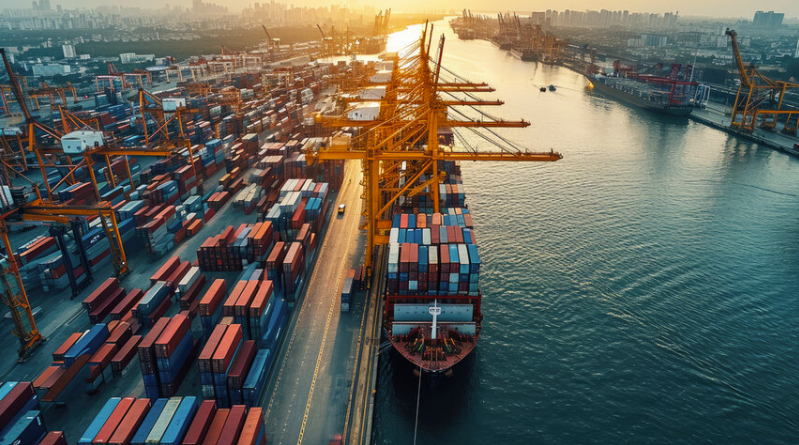Ports as gateways to trade

Why Port Collaboration Matters in the Western Cape
The Western Cape is at the heart of South Africa’s food and beverage exports -contributing nearly 40% of the country’s total, valued at R186 billion in 2022. Over half of South Africa’s agricultural exports come from this region, making efficient port operations vital for our economy.
Our ports are critical gateways that connect local products to global markets. To keep goods moving smoothly, especially perishable and high-value exports, strong collaboration between all role players is essential. This includes the Transnet National Port Authority (TNPA), Transnet Port Terminals (TPT), Exporters, Transporters, Shipping Lines and Customs and Border Agencies, among others.
When we work together, we unlock real-world benefits:
- Less congestion and faster turnaround times for trucks
- More efficient movement of goods for export
- Better planning and fewer delays through data sharing
- Shared problem-solving and accountability
- Faster response to disruptions
- Greater investor confidence through coordinated action
Through collaboration, the Western Cape can strengthen its position as a globally competitive export hub, supporting economic growth and job creation across the province.
Improving Port Performance Through the PMU
Efficient ports are essential for a thriving economy — especially in the Western Cape, where nearly 40% of South Africa’s food and beverage exports move through the Port of Cape Town.
To help tackle the operational challenges at the port, the Western Cape Mobility Department (WCMD), in partnership with the Department of Economic Development and Tourism (DEDAT), established the Port of Cape Town Logistics Development Project Management Unit (PMU).
The PMU serves as a central coordination body to drive collaboration, improve performance, and strengthen the port’s role in growing the province’s economy. It brings together key stakeholders — including government, transporters, port authorities, and industry partners — to identify and implement practical solutions.
The PMU’s Key Focus Areas:
- Engaging Stakeholders: Creating a structured platform for dialogue and shared priorities.
- Driving Change: Supporting the port’s transformation through formal change management.
- Planning for Results: Aligning strategic and operational plans with on-the-ground realities.
- Solving Key Issues: Addressing container delays, equipment breakdowns, trucking congestion, rail deterioration, and more.
- Using Data and Technology: Introducing smart systems and analytics to improve operations and transparency.
- Tracking Progress: Monitoring the impact of projects and reporting on results.
The WCMD leads several of the PMU’s initiatives, such as the Transporter Representative Organisation (TRO) and Logistics Efficiency Measures (LEM), helping to ensure real improvements in freight movement and port operations.
This work forms part of the province’s broader Growth for Jobs Strategy, recognising that efficient freight logistics are key to unlocking investment, boosting exports, and creating economic opportunities.
Driving Innovation Through Logistics Collaboration
The Western Cape Mobility Department, through the Port Logistics Development Project Management Unit (PMU), continues to lead and support collaborative efforts aimed at improving port performance and freight efficiency. Two key initiatives have recently advanced this work:
1. Logistics Ecosystem Mapping Project (LEM)
The LEM Project provided a comprehensive overview of the Western Cape’s logistics landscape — highlighting the crucial roles of the Ports of Cape Town, Saldanha, and Mossel Bay.
Key achievements included:
- Mapping of commodity corridors, transport routes, and logistics nodes
- In-depth stakeholder engagement with shipping companies, transporters, and freight associations
- Identifying key role-players and interdependencies in the provincial logistics ecosystem
This foundational work supports evidence-based planning and improved coordination across the freight and logistics sector. Do we have a map of western cape where this is outlined/pinned?
2. Digital Logistics Planning Platform (DLPP)
Originally developed as part of a fruit export initiative, the DLPP is a digital tool designed to improve visibility of container arrivals at the Cape Town Container Terminal (CTCT).
Developed in collaboration with SAAFF and Crickmay, and with input from Transnet and other logistics agencies, the platform offers:
- Data-driven insights to support planning and reduce delays
- A phased, globally benchmarked upgrade roadmap over three years
- A focus on cooperative competition to boost efficiency in container logistics
The PMU is currently supporting the second phase of development for the DLPP, helping to build the platform into a strategic asset for the port logistics sector.
Together, these projects highlight the Department’s commitment to collaboration, innovation, and long-term investment in the province’s freight and port systems — all in support of economic growth and the Growth for Jobs strategy.
